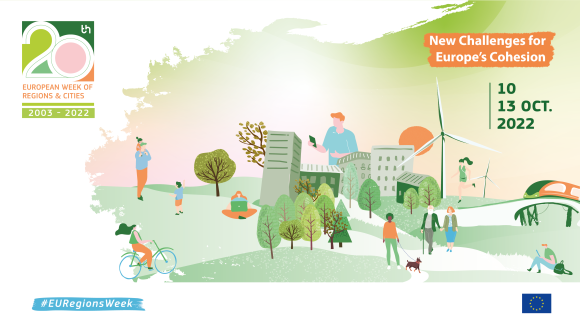
Brussels – The contribution of local actors and civil society to green energy transition is majorly important, as shared by members of the European Committee of the Regions . On this note, the workshop "The contribution of local actor on green and energy transition" was held in Jacques Delors Building on October 13th.
Discussing for over hour and half, the speakers suggested the ways to accelerate the transition, urging to bold actions. Walburga Hemetsberger, CEO of SolarPower Europe, introduced how solar panels are a crucial part of the transition. “Solar panels can be installed in days, maybe few weeks,” she said, pointing out that European Union just needs to make bold decision so that the transition would be quick. According to Hemetsberger, climate and energy crisis is a very serious topic that needs to be addressed urgently. She also approves of the solar mandate proposed by the European Commission, that is already in function in some regions.
Such solar panels, but also other projects could be funded by the Just Transition Fund. It will support European regions relying on fossil fuels and high-emission industries in their green transition – such as Hornonitriansky region in Slovakia, that is majorly focused on black coil production.
Projects supported by the Just Transition Fund will receive investments – usually to small and medium-sized enterprises, research and innovation, renewable energy, emissions reduction, circular economy, and reskilling of workers.
Joaquín Nieto, expert in the social dimension of climate change and just transition, pointed out that necessary actions such as closing coal mines can spark a conflict in local regions, therefore the transition must be done carefully and with eyes on the social dimension of the problematic. He believes that the companies that produce renewable energy can be helpful in mitigating the consequences of the energy and climate crisis: about 500 000 new jobs could be created by 2025. However, there is a need for investment to upgrade the skills of workers.
The need for green energetic transition was stressed even on the closing session of the EU Region ́s week by the Commissioner for Cohesion and Reforms, Elisa Ferreira: “Climate crisis is more urgent than ever – we have seen it this summer on the massive fires that were affecting the health and well- being of the European citizens”.
However, some critics are saying that the Cohesion Funds are not enough. “While I think EU cohesion funds can help, they are certainly not the solution on their own. The EU must finally stop greenwashing, not only to meet its own climate targets at all, but also to ensure that environmental and climate protection funding is actually used as it should be. I am thinking, for example, of the taxonomy where gas and nuclear energy have been labelled as 'green',” argued Juliane Gerbel, Environmental Studies student, and local activist from Slovakia.
“Our society cannot continue to have economic growth as the main goal if we want to achieve climate justice. Climate protection is not just about energy transition, it must go hand in hand with the protection of biodiversity, the reduction of consumerism, as well as other steps such as fighting against various types of discrimination or moving away from animal products and towards a more plant-based diet,” she adds.
Green energetic transition is one of the EU ́s priorities for 2019-2024 period and have been stressed in the Green Deal programme. It should make the EU's climate, energy, transport, and taxation policies fit for reducing net greenhouse gas emissions by at least 55% by 2030, compared to 1990 levels.
Barbora Výrostková | Edited by Xoel Rodríguez Poy



